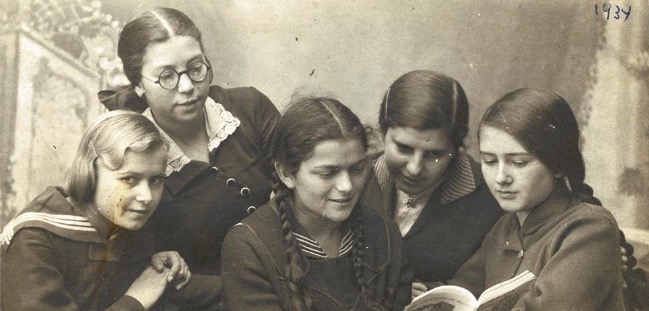These are the critical questions at the core of five upcoming events: A joint conference between faculty from Fordham and Ben-Gurion University and the four-part In Dialogue Series on Polish-Jewish relations, hosted by Fordham, Columbia University, and the YIVO Institute for Jewish Research.
The faculty conference will take place from October 7 to 8 on the Lincoln Center campus. Fordham and Ben-Gurion scholars from Israel will present “Appropriation in (and of) the Premodern World,” in which they’ll address how people from different cultures and religious communities appropriated each other’s ideas, texts, legal practices, spaces, art, and material culture.
“Because we wanted to be inclusive with interreligious encounters and exchanges, we came up with this idea of appropriation: how different cultures use and appropriate different sites, texts, or traditions, and make it their own,” said Magda Teter, a Fordham history professor and the Shvidler Chair in Judaic Studies.
The four-part series will examine Polish-Jewish relations from the 15th century to the modern age. Discussion topics include the Jews’ belonging and exclusion throughout history, nationalism and antisemitism in the aftermath of World I, and how perceptions from the past have changed over time. The series will culminate with a full-day symposium on the post-WWII era at the YIVO Institute for Jewish Research.
“Jews have always been a minority group, living scattered for centuries,” said Teter. “So this certainly raises some of the larger questions of rootedness, belonging, of who belongs to what story, how history is told, and the ramifications for social inclusion and exclusion.”
Related to the series is a conversation between Teter and David Stromberg—a writer, translator, and literary scholar based in Jerusalem, and one of the inaugural Fordham-New York Public Library Research Fellows in Jewish Studies.
The events obviously hold appeal for scholars interested in European, Jewish, and Polish history, said Teter. But even for those who are oblivious to Polish or Jewish history, the discussions may still be quite relevant.
“We are living in an era where we’re witnessing the questions of how American history is told,” said Teter. “Who belongs to the rubric of American history? Who is an American? Who is not American? In that way, there might be some parallels.”
All events are free, but registration is strongly encouraged.
“Appropriation in and of the Premodern World: The First Annual Conference of Fordham and Ben-Gurion Universities”: October 7-8 at McMahon Hall
“In Dialogue” on Polish-Jewish Relations:
Part I: The Polish-Lithuanian Commonwealth and the period of the partitions. October 4, 2018, 6 p.m. at Fordham Law School
Part II: Polish-Jewish relations of the interwar period. November 15, 2018, 6 p.m. at Fordham University, Lincoln Center
Part III: Polish-Jewish relations during WWII. February 21, 2019, 6 p.m. Location TBD
Part IV: Full-day symposium on the post-WWII era. May 5, 2019 at the YIVO Institute for Jewish Research

